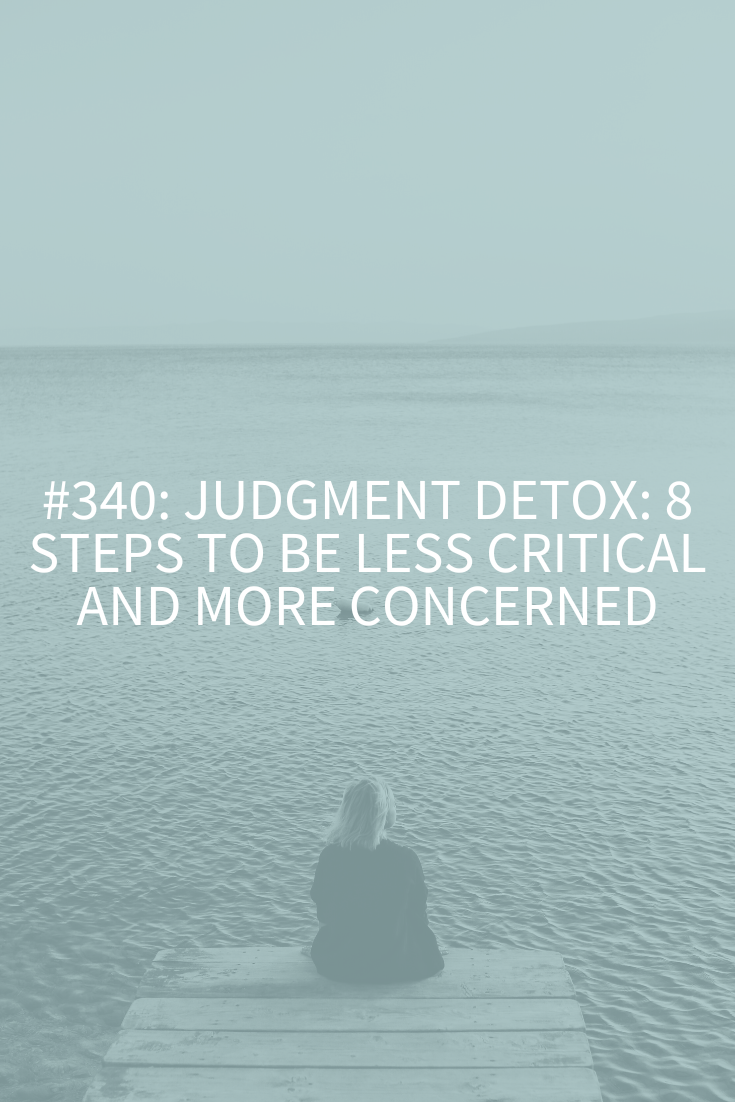
Every relationship has some form of manipulation. Unless you’re the most self-actualized being in the Universe (and I think you’d be off floating on a cloud somewhere and not listening to me right now), you are sometimes manipulative and sometimes on the receiving end of manipulation. Today, we’re going to talk about the subtle signs as well as the big warning flags. Then we’ll talk about why people manipulate, why you put up with it, and how to make it stop.
11-minute read
An Introduction to Manipulation
In relationships (whether that’s with your partner, parent, coworker, or friend), manipulation is an attempt to control how someone else thinks, feels, or behaves. Emotional manipulation in relationships can be difficult to recognize because it might be so subtle that you end up examining your own behavior rather than the other person’s. You’re wondering what you said wrong or doubting your intuition or gut feelings. You try to speak to someone about something that’s upset you, yet you’re the one walking away feeling confused, drained, anxious, or even guilty.
Subtle Sign of Manipulation
I want to start our conversation today with the biggest, most common, but most subtle sign of manipulation. This is something you’ve done to others (yes, you’ve tried to manipulate someone else) and a way that they’ve manipulated you.
And what’s that one thing? Not saying how you really feel.
Yup. You’ve done this. You’ve been in a situation where you haven’t shared how you’re really feeling about something. This is called lying (I hear you gasping but stick with me). You are either outright lying and saying you feel “fine” when you really don’t or you’re not saying anything and walking away with lots of feelings which is lying by omission.
I’ve made that statement to get your attention (and I know I have), but let me clarify, as it’s not all so black and white in my world. If you’re not saying how you really feel in a moment because you want to take a minute, be mindful, and get clear of what you’re feeling, that’s something different. That’s healthy and not manipulative as long as you swing back to the conversation at some point with your newfound clarity.
However, most people don’t share how they’re really feeling because they don’t want to deal with the other person’s expected response. You’re not sharing so that the other person won’t be angry or upset (or whatever other reaction you’re fearing). That’s the very definition of manipulation! You’re trying to control someone else through your words or actions. I’m not saying you’re a bad person for doing this; I’m only saying that you need to be honest about what you’re doing. And, like all manipulation, this eventually hurts this relationship.
Other Signs of Manipulation
Almost all other signs of manipulation are some kind of emotional blackmail. Someone else is trying to make you feel guilty or upset about a decision you’ve made or a boundary you’ve drawn. With that said, there are many, many forms that this manipulation can take.
- Gaslighting is probably the most common thing people think of when they think of being manipulated. I’ve covered the signs that someone is gaslighting you and what to do about it in depth, so I’m not going deep on it here. But, in general, gaslighting is a dangerous form of manipulation where someone acts in such a way that you start doubting your perceptions, your memory, or your own judgment.
- Passive-aggressive behavior is the second most common form of manipulation that I see. Again, I’ve done an entire episode on how to deal with passive-aggressive people, so I’ll just say here that passive-aggressive folks don’t express anything they’re thinking or feeling directly. This can range from constant sarcasm to martyrdom (I’ll just do it myself) or avoidance (I didn’t hear you, that’s why I didn’t put away the dishes). You might hear some heavy sighs or see some pouting, but when you ask what’s wrong, they tell you it’s all fine.
- They’re all about VERRB. When someone is acting like a victim, entitled, saying they can read your mind (or you should read theirs), waiting for you to rescue them, or blaming you in any way for their lot in life, you’re being manipulated. And, of course, if you do this, you’re being manipulative, whether you meant to be or not. I talk about this more in an episode called The Five Signs You’re in an Unhealthy Relationship.
- The silent treatment is another sign. This can look like the cold shoulder, withholding love, affection, or sex, or withdrawing from you.
- The love bomb is one of those signs of manipulation that might seem wonderful at first, but it’s a warning sign you should pay attention to. When someone is giving the love bomb very early in the relationship (gifts, trips, constant attention, compliments, etc.) it’s a problem. There’s no foundation to support this kind of “all in” behavior, and the person is trying to make you think the relationship is more or stronger than it actually is.
- Others think so too. People can manipulate by saying that “everyone feels this way” as they justify their own opinions. They might also call your family or friends behind your back to get support.
- Overt lying or constant omissions. They might overtly lie, exaggerate things or omit important information and say they “forgot.”
- Your partner might threaten to leave you, your friend might threaten to hurt themselves, or your dad might threaten to cut you out of the will.
- They assign meaning to things. Can you pick me up at the airport becomes, “If you loved me, you’d take the day off and pick me up from the airport,” or “It won’t take all day to pick me up, so just do it” (minimizing).
- Dramatic statements. I thought you loved me! You, of all people, should understand! You’re the only person I’ve ever loved!
You know you’ve been manipulated because you feel:
- Confused
- Guilty
- Inadequate
- Disappointed in yourself
- Like you can’t trust yourself
- Stuck
- Exasperated
- Frustrated
- Resentful
- Hopeless
- Unsure
- Like you’re always walking on eggshells
Consistent manipulation will likely affect your self-esteem and may even result in anxiety or depression.
Why Do People Act Manipulatively?
The research shows consistently that most people manipulate, in some way, from time to time. In my long experience, the majority of people who manipulate aren’t aware that’s what they’re doing. They just think that this is how you’re supposed to act with your partner, boss, or friend. For those who do know they’re being manipulative, the majority don’t realize how they’re affecting you. “She’ll just be upset if I tell her my old girlfriend called, so I won’t let her know. I’m not interested in my ex, so it’s not hurting anyone.”
There’s a final, very small group (again, in my experience) who are absolutely aware of their lies, gaslighting, and manipulation and how all this is impacting you. But this is a minor percentage of manipulators, and I say that so you can have some compassion for someone who might be manipulating you or for yourself if you’re the one doing the manipulating.
What I’m trying to say is that most people who manipulate aren’t “bad.” Instead, they’re taking part in unhealthy behavior because it’s what’s “normal” to them, or they have a mental health issue that needs to be addressed.
Most people who manipulate have complex reasons for their need to control their relationships, such as:
- How they were raised. Anyone who is consistently manipulative likely saw that modeled in their household growing up. This shows up in so many ways! Maybe your dad consistently said, “don’t tell your mom,” when you’d do things together, so you now see it as normal to keep secrets from your spouse. Maybe when you said how you felt in your home growing up, you were told, “You don’t really feel that way,” or “it wasn’t that bad, so stop crying.” You then grew up not trusting your own or others’ feelings. You can see how big and broad this list is. Maybe they needed to manipulate just to get basic needs met.
- Having a personality disorder such as borderline personality disorder or narcissistic personality disorder
- Having an active drug or alcohol addiction
- Having low/no self-awareness or poor communication skills
- Having an anxious attachment style or high anxiety
Why Do People Allow and Accept Manipulation?
In all of this, there’s a giver and a receiver. It’s easy and convenient to blame the manipulator, but if you’re in a relationship where this has been going on for a while, and you haven’t left or created safe boundaries, then it’s time for you to take full responsibility for your side of the street.
If you’re allowing yourself to be manipulated (and that’s how you need to think of it from now on unless you are physically being held against your will), it’s time to get educated and learn the skills necessary to draw boundaries (and stick to them).
Most people allow themselves to be manipulated for many of the same reasons that a person manipulates.
- How you were raised. You might be a fish who doesn’t even know it’s wet. You might not realize that something is manipulative, only that you feel bad because of what you saw as “normal” in your own family growing up.
- Fear of abandonment or being alone
- Codependency and people-pleasing
- This might also be a response to your own trauma
- Not having the social support to help them leave
Get a dose of love, positivity, and motivation delivered straight to your inbox. This biweekly reminder will keep you on the path to creating connected, happy relationships (especially the one with yourself!).
What to Do if You’re in a Manipulative Relationship of Some Kind:
#1: Trust your gut
Make it a practice of identifying and naming your feelings on a daily basis. By doing this, you can start to identify when you feel that something is off or wrong in any of your relationships. Learn to trust your gut and acknowledge its rightness. It doesn’t mean your facts are correct in a conversation, but it does mean your feelings are correct. How do you feel, right now, in this conversation? That’s what’s really going on.
#2: Trust those feelings
Now that you’ve identified your feelings, it’s time to focus on feelings, not facts, in your conversation. When you engage, you want to focus on specific situations and focus on feelings, not content. The I Feel Formula is a great way to make this happen.
I feel discouraged and sad
When you consistently take no responsibility
And I need you to tell me one thing that’s your responsibility in this situation
I feel confused and frustrated
When you insist that I’ve said something I didn’t
And I need you to listen like you’re wrong
#3: Be in charge of the conversational flow
It’s important to take a breath and not get defensive yourself. Give the other person room to have their say and share what they’re thinking and feeling. Then restate and say, “What I hear you saying is….” Check with them that this is correct. Now ask if they’re ready to hear what you’re thinking. If they are, share what’s going on for you and then ask them to repeat back what you said. This is another way to keep a tight frame on the conversation.
Keep the conversation on topic. You might bring something up, and the other person says, “Me? What about you?! You do the same thing all the time!” Your job is to say something like, “I’m approaching you right now, so I hold the floor. If you want to talk about my behavior another time, that’s fine with me, but right now, we’re talking about X.”
It goes without saying (but I’m going to say it) that you also need to be mindful and aware of your emotions and reactions as you’re interacting with this person. You can’t allow yourself to get caught up in defensiveness or anxiety. Stop, breathe, and stay engaged in the moment as you talk.
#4: Set and hold boundaries
I’ve already discussed how to make boundaries and the importance of holding those boundaries too. This is what it’s all about. If you keep doing what you’ve always done, you’re going to get what you’ve always got. The new thing to do is hold your boundaries. Having non-existent or unclear boundaries is the easiest way for you to be manipulated.
#5: Seek professional help
If all else fails, it’s time to seek professional help to guide you through this relationship.
Wrap Up
This is really about you and taking responsibility. It’s not about changing this other person. What can you do to feel better in their presence right now? Viktor Frankl said, “When we are no longer able to change a situation, we’re forced to change ourselves.” I understand that right now you don’t feel like you can leave your partner, quit your job, or never speak to your mom again. And I’m not advocating any of those things anyway. Making changes right where you are will be incredibly empowering. Stop engaging in the power struggle arguments. Come up with a mantra to calm yourself when you feel yourself getting pulled in. Work on building up your self-esteem and self-confidence.
Understand that you can’t control or change the other person. Focus on changing yourself. Focus on what you can do, day-to-day, to feel better so you can be a better problem-solver and thinker for yourself.
Resources for Are You Being Manipulated? Learn the Signs and How to Stop It
Signs That Someone is Gaslighting You and What to Do About It
How to Deal with Passive-Aggressive People
Five Signs You’re in an Unhealthy Relationship
How to Cope When a Loved One Has Borderline Personality Disorder
How Your Attachment Style Affects Your Personal Relationships
Your People Pleasing Might be a Trauma Response
How 5 Minutes of Mindfulness a Day Can Make Your Relationships Great
Eight Ways to Build Your Confidence and Self-Esteem
What to Do If Your Partner Blames You When Things Go Wrong and Is Gaslighting You







